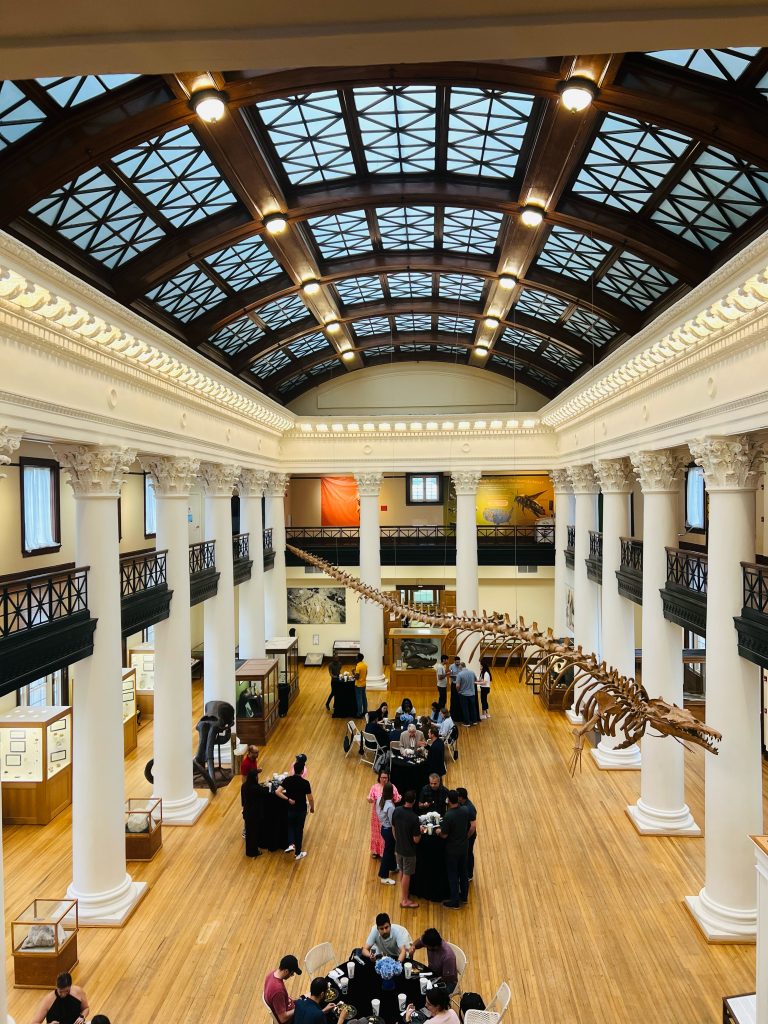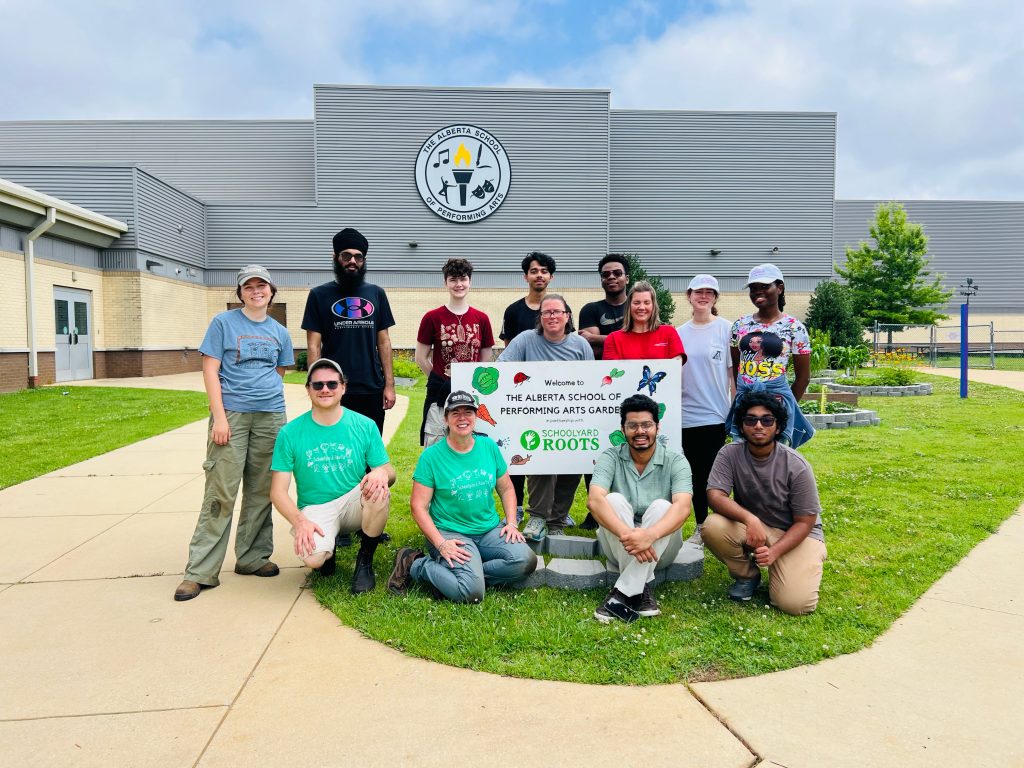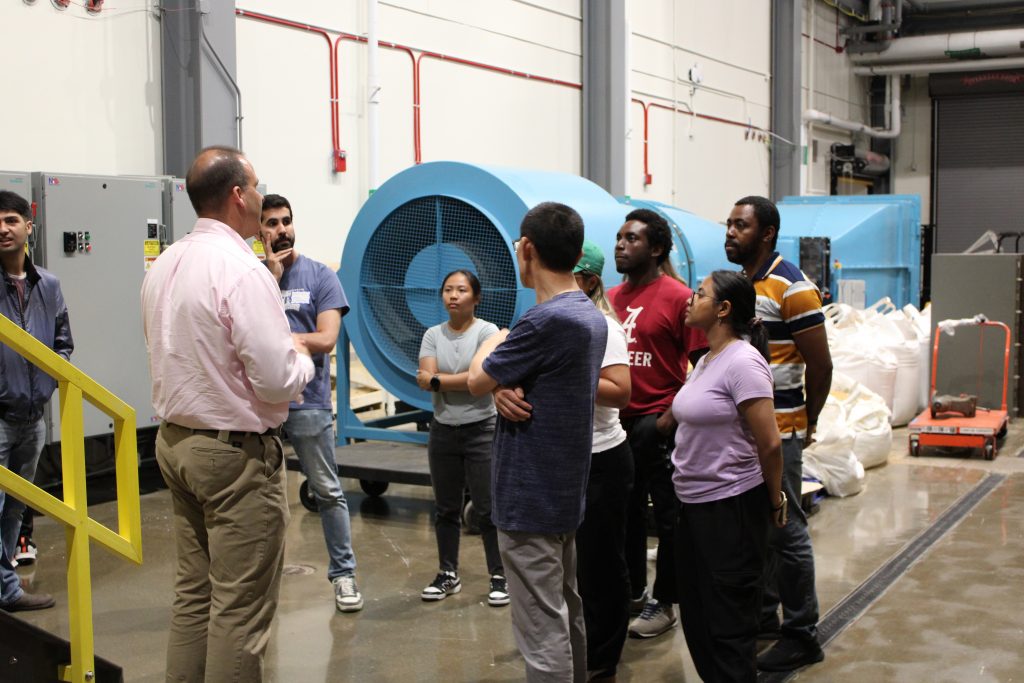
TUSCALOOSA, Ala. – Welcome to Watertown, USA, future leaders of hydrology. Tuscaloosa, a town synonymous with SEC football, becomes the epicenter of America’s next-generation water workforce development each summer.
CIROH’s summer programming draws students, scientists and federal partners from across the country to prepare tomorrow’s water leaders with the tools, knowledge and networks they need to address current real-world water challenges.
This year, three distinct programs— Water Prediction Innovators Summer Institute, Research Experience for Undergrads (REU) and FLOW Academy—converged in Tuscaloosa. Each offers a different entry point into hydrologic research, technology and data science. Together, they exemplify CIROH’s commitment to interdisciplinary collaboration and innovation in water prediction.
A Decade of Discovery: Summer Institute Turns 10
Celebrating its 10th year, the Water Prediction Innovators Summer Institute continues to lead the nation in immersive, applied research for graduate students. Over seven weeks, interdisciplinary teams take on research challenges, such as flood forecasting to drought risk, guided by leading scientists and practitioners. Their work culminates in a capstone event, where findings are presented to peers, professionals and agency leaders.
“The Summer Institute is about bringing young people together for the chance to contribute to a national enterprise. [Participants have] the chance to try to improve something for the country and not just for an academic subject,” said David Maidment, professor emeritus of civil engineering at the University of Texas at Austin.
As a testament to the Summer Institute’s lasting impact, the first cohort prototyped the U.S. and global water models here in Tuscaloosa. Now, as the Summer Institute enters its next decade, the 2025 program is more ambitious than ever. Special programming is planned to celebrate the ten-year milestone, and new research themes continue to reflect the dynamic needs of NOAA and the broader water community.
To learn more about the Water Prediction Innovators Summer Institute, visit this website.
Research Experience for Undergrads: Forecasting Futures with AI

For undergraduates curious about where artificial intelligence meets water science, CIROH’s REU delivers an unbeatable opportunity. This 10-week hydrologic AI forecasting program trains students in machine learning, data science and programming.
“I’ve learned skills here that I couldn’t have picked up on my own,” said Quinn Lee, current CIROH staff scientist and former REU participant.
With a doubling of its cohort size from last year, the REU program’s momentum is clear. Sponsored in part by the U.S. Geological Survey (USGS), this summer’s program includes field trips, federal agency connections and a robust capstone event showcasing projects from across the hydrologic spectrum.
“This is more than a summer job,” said Lanna Nations, CIROH’s director of education and outreach. “It’s a formative experience that gives students a competitive edge whether they go to grad school, federal agencies or the private sector.”
Read more about the REU program here.
Building the Toolkit: FLOW Academy’s Sensor-Powered Science
What happens when you combine robotics, edge computing and water monitoring into a single program? You get the FLOW Academy. Developed by USGS and CIROH, this hands-on, challenge-based program gives undergraduate and graduate students the chance to prototype sensor solutions for real-world water problems.
Held over seven weeks in Tuscaloosa, FLOW is equal parts research, fieldwork and technical skill-building. Students experiment with microcontrollers, autonomous vehicles, cameras and more—culminating in a capstone symposium where they present their solutions to USGS scientists and technology leaders.

“The 2025 USGS FLOW Academy is all about applicable ways to address hazards brought about by hydrological extremes. Students have been learning a variety of hands-on skills (everything from edge computing to soldering) they can use to put their ideas into tangible and testable prototypes,” said Marie Wilson, CIROH education and outreach coordinator. “Work has begun on four different projects, covering water quality during flooding, early warning systems, velocity profiles post-flooding and lake/river stage level monitoring.”
Participants also benefit from leadership workshops, career seminars and field trips to sites like the Cahaba River and NOAA’s facilities, reinforcing the program’s blend of hands-on science and professional growth.
Read more about FLOW Academy here.
The Takeaway: Investing in People and Powering the Pipeline
Whether through advanced modeling, AI forecasting or hands-on sensor design, CIROH’s summer offerings are helping shape the next generation of water scientists, and they all start in Tuscaloosa. “At the Alabama Water Institute, we are unbashful in our belief that The University of Alabama and Tuscaloosa can—and should—become the nation’s epicenter for water research, education, innovation and operations: WaterTown, USA,” said Matt Womble, AWI executive director. “CIROH’s summer education programs, including the Water Prediction Innovators Summer Institute, FLOW Academy and the REU, are central to that vision. With more than 225 students trained to date, these programs are a powerful testament to what is possible when like-minded partners across academia, government and the private sector come together with a shared purpose. These programs are not just preparing future leaders—they are shaping the future of water.”